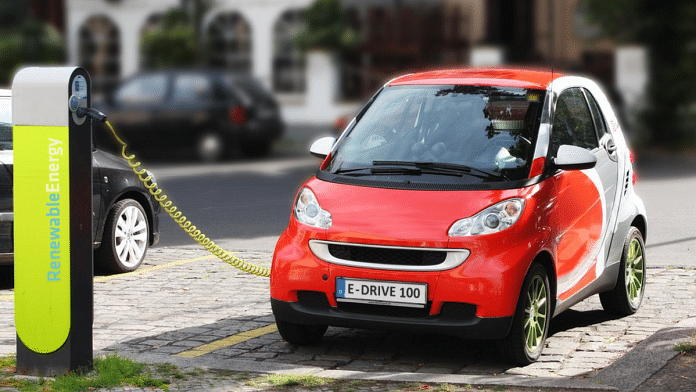This year, consumers have gained more insight into how much energy is at the crux of international relations, national finances, and climate change worldwide. In short, the cost of energy – the human, environmental, political, and economic cost – has never been more in the spotlight. As a result, people across the world have been looking for ways to redefine their relationship to energy. From heat pumps and solar panels to the divestment of assets related to natural gas and oil, and from a national policy level to the individual consumer level, people are making choices for the future of clean, green energy.
This is very evident with the dramatic move towards electric vehicles (EVs). Between 2020 and 2021, EV sales doubled to 6.6 million vehicles. Some expert observers believe EVs should exceed 50% of total automotive sales in the largest markets, such as the US, by 2030. But the batteries used in electric vehicles and other heavy machinery are complex, and involve numerous materials sourced from disparate regions of the globe – from cobalt and copper in the Democratic Republic of the Congo to lithium and iron in Australia. The battery value chain and CO2 footprint of batteries is still relatively opaque.
There is a real need for transparency, clarity and understanding around the environmental impact of EV batteries. With this in mind the Global Battery Alliance (GBA) has launched the Greehouse Gas Rulebook for calculating and tracking the greenhouse gas footprint of lithium-ion batteries in electric vehicles and other applications. The rulebook incorporates many existing standards and guidelines, including guidance from the EU and International Organization for Standardisation (ISO). But it goes beyond these to set out around 80 globally harmonised rules in an easy-to-use format.

The Rulebook is a comprehensive tool that sets out the environmental impact of all varieties of lithium-ion batteries and their components. It encompasses the EV battery lifecycle, providing the industry with much-needed best practice and governance. It will also underpin the Battery Passport, the GBA’s flagship initiative. Each Battery Passport will be a digital twin of its physical battery, offering a way to securely share information and data, and track the environmental impact.
The Rulebook aims to provide a sound method by which to generate and collect process-specific data, so users and manufacturers can compare the carbon footprints across vendors of batteries and their components. The Rulebook will establish the framework for consistent data collection for the Battery Passport, providing an unprecedented, wide-reaching seal of assurance on the sustainability, provenance and governance of the batteries that are powering the EV revolution.
From high politics to home heating and personal vehicles, transparency is extremely important. The question of how we deal with energy has the capacity to affect nearly every aspect of our lives, and the lives of others. The Global Battery Alliance is committed to providing the mechanisms to do so responsibly. The GHG Rulebook is the first step in taking this vital information and turning it into action.
This article was originally published in the World Economic Forum.
Also read: XUV400 quiet even by e-car standards; can make noise in C-segment SUV if M&M fixes few things



